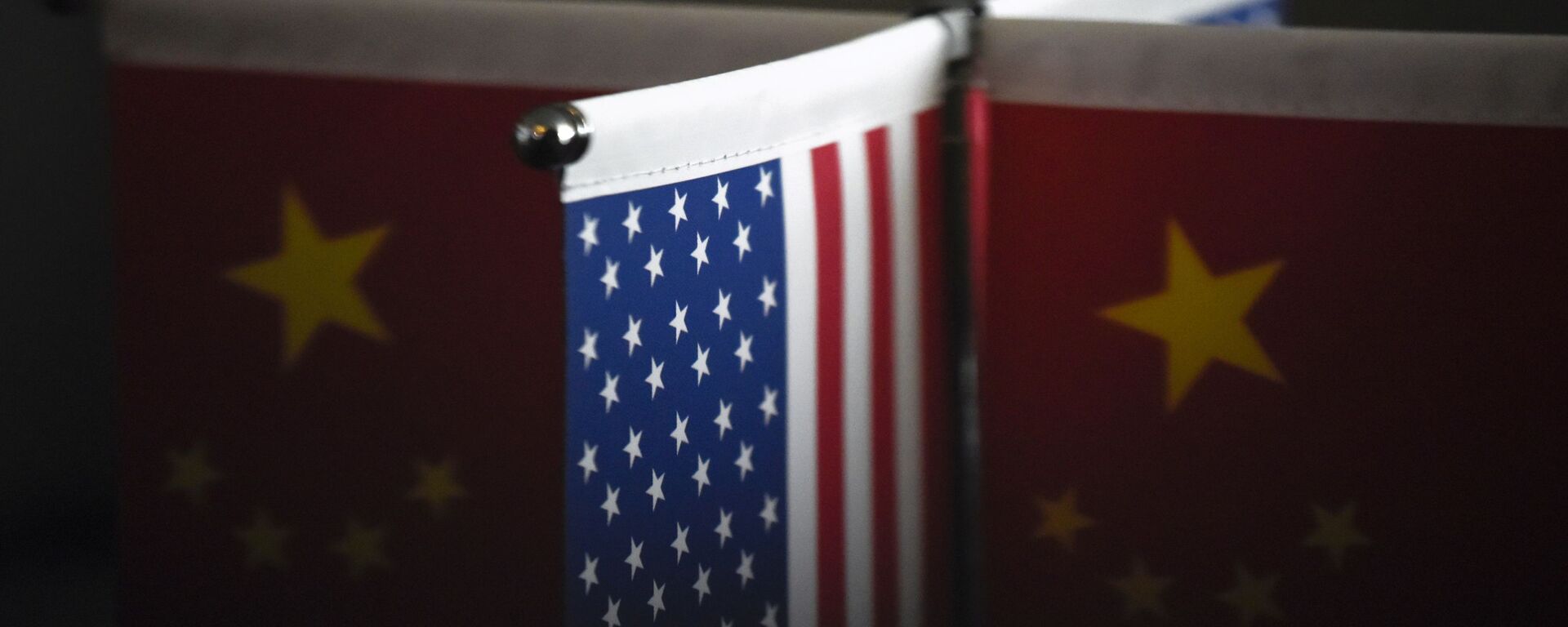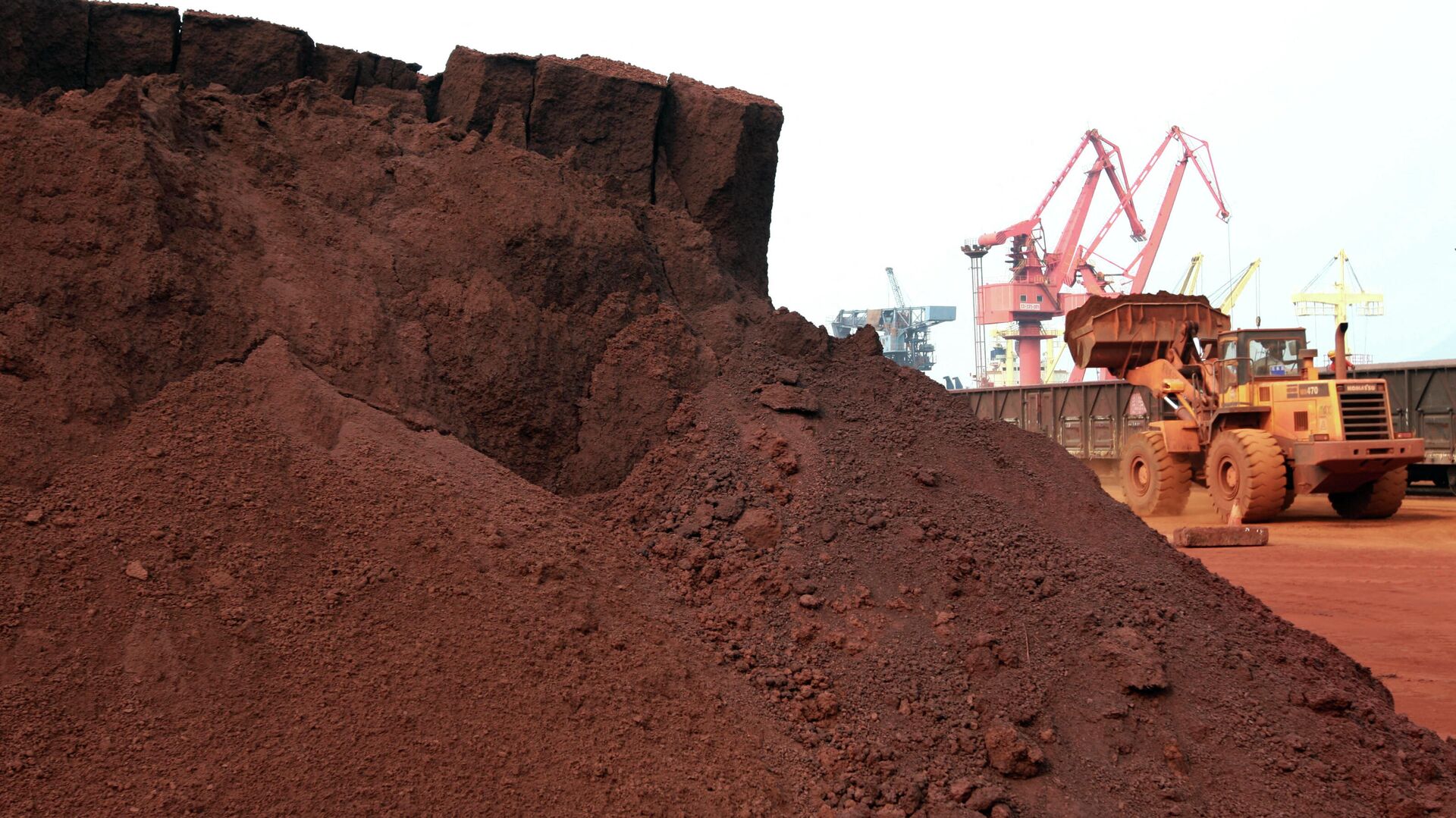https://sputnikglobe.com/20220115/us-lawmakers-mull-banning-defence-contractors-from-buying-chinese-rare-earths-1092282712.html
US Lawmakers Mull Banning Defence Contractors From Buying Chinese Rare Earths
US Lawmakers Mull Banning Defence Contractors From Buying Chinese Rare Earths
Sputnik International
Over the past few decades, the US has lost its dominance in mining and processing of rare earth materials having been supplanted by China. Now, as Washington... 15.01.2022, Sputnik International
2022-01-15T17:56+0000
2022-01-15T17:56+0000
2023-04-13T12:44+0000
us
china
rare-earth metals
pentagon
https://cdn1.img.sputnikglobe.com/img/07e6/01/0f/1092282686_0:90:3188:1883_1920x0_80_0_0_fb18534b6180df3deb238f0cf46e8195.jpg
Two US Senators, Republican Tom Cotton and Democrat Mark Kelly, have submitted a Bill proposing a ban on buying rare earths from China for government defence contractors. If the Bill, called Restoring Essential Energy and Security Holdings Onshore for Rare Earths Act, is passed, defence companies building weapons for the US will have to stop buying rare earth materials from China by 2026. The latter are often used in modern technologies.The law is supposed to persuade contractors to use American rare-earths supplies. However, there is only one rare earths mine functioning in the US and practically no plants that can process them into powerful magnets and other materials and goods.This is where the Bill becomes controversial. To help the contractors to fulfil their obligations in conditions of poor rare earths supplies in the US, the authors propose they should seek these materials from a reserve created by the Pentagon. However, this reserve is at present being filled by the very Chinese rare earth materials that the contractors will be banned from buying if the Bill is passed.At the same time, the Bill inked by Cotton and Kelly contains no means to support the emerging (or rather reviving) US rare-earth industry. Major US defence companies did not comment on the Bill's proposals.The US used to be a leader in production of rare earths, but later ceded the throne to China, which now controls most of the market. Beijing blocked exports of rare earth metals which are essential for modern technologies only once as it acted against Japan in 2019, but it warned it could do the same to the US.The latter designated China as a potential adversary and a rival in the global arena during Donald Trump's administration. Joe Biden's administration made no attempts to become reconciled with Beijing and even expanded tensions, although it added that Washington is ready to work with China in areas where their interests do not collide, such as climate change.Furthermore, in the light of the supply chain disruptions caused by the pandemic, the American politicians called on bringing a lot of critical production capabilities back home - especially the ones related to national security and the defence industry, and passing laws that would facilitate this process. The disruptions mainly affected the chip industry, forcing many companies in the technological and even automotive industries to reduce the planned output of their products because of a shortage of key components.
https://sputnikglobe.com/20211125/harmful-for-global-supply-chain-china-blasts-us-for-banning-12-entities-without-factual-basis-1091011078.html
china
Sputnik International
feedback@sputniknews.com
+74956456601
MIA „Rossiya Segodnya“
2022
Tim Korso
https://cdn1.img.sputnikglobe.com/img/07e6/03/0d/1093831826_0:0:216:216_100x100_80_0_0_e3f43a960af0c6c99f7eb8ccbf5f812c.jpg
Tim Korso
https://cdn1.img.sputnikglobe.com/img/07e6/03/0d/1093831826_0:0:216:216_100x100_80_0_0_e3f43a960af0c6c99f7eb8ccbf5f812c.jpg
News
en_EN
Sputnik International
feedback@sputniknews.com
+74956456601
MIA „Rossiya Segodnya“
Sputnik International
feedback@sputniknews.com
+74956456601
MIA „Rossiya Segodnya“
Tim Korso
https://cdn1.img.sputnikglobe.com/img/07e6/03/0d/1093831826_0:0:216:216_100x100_80_0_0_e3f43a960af0c6c99f7eb8ccbf5f812c.jpg
us, china, rare-earth metals, pentagon
us, china, rare-earth metals, pentagon
US Lawmakers Mull Banning Defence Contractors From Buying Chinese Rare Earths
17:56 GMT 15.01.2022 (Updated: 12:44 GMT 13.04.2023) Over the past few decades, the US has lost its dominance in mining and processing of rare earth materials having been supplanted by China. Now, as Washington escalates tensions with Beijing describing it as a "rival" (in some areas), the US seeks to revive domestic production of materials so vital to modern technologies.
Two US Senators, Republican Tom Cotton and Democrat Mark Kelly, have submitted a Bill proposing a ban on buying rare earths
from China for government defence contractors. If the Bill, called Restoring Essential Energy and Security Holdings Onshore for Rare Earths Act, is passed, defence companies building weapons for the US will have to stop buying rare earth materials from China by 2026. The latter are often used in modern technologies.
"Ending American dependence on China for rare earths extraction and processing is critical to building up the US defence and technology sectors," Cotton said in an interview with Reuters.
The law is supposed to persuade contractors to use American rare-earths supplies. However, there is only one rare earths mine functioning in the US and practically no plants that can process them into powerful magnets and other materials and goods.
This is where the Bill becomes controversial. To help the contractors to fulfil their obligations in conditions of poor rare earths supplies in the US, the authors propose they should seek these materials from a
reserve created by the Pentagon. However, this reserve is at present being filled by the very Chinese rare earth materials that the contractors will be banned from buying if the Bill is passed.
At the same time, the Bill inked by Cotton and Kelly contains no means to support the emerging (or rather reviving) US rare-earth industry. Major US defence companies did not comment on the Bill's proposals.
The US used to be a leader in production of rare earths, but later ceded the throne to China, which now controls most of the market. Beijing blocked exports of rare earth metals which are essential for modern technologies only once as it acted against Japan in 2019, but it warned it could do the same to the US.
The latter designated China as a potential adversary and a rival in the global arena during Donald Trump's administration. Joe Biden's administration made no attempts to become reconciled with Beijing and even expanded tensions, although it added that Washington is ready to
work with China in areas where their interests do not collide, such as climate change.

25 November 2021, 12:54 GMT
Furthermore, in the light of the supply chain disruptions caused by the pandemic, the American politicians called on bringing a lot of critical production capabilities back home - especially the ones related to national security and the defence industry, and passing laws that would facilitate this process. The disruptions mainly affected the chip industry, forcing many companies in the technological and even automotive industries to reduce the planned output of their products because of a shortage of key components.



